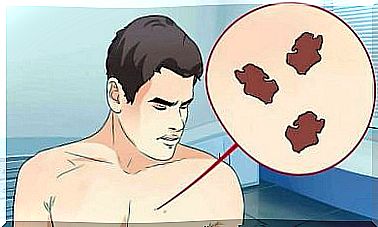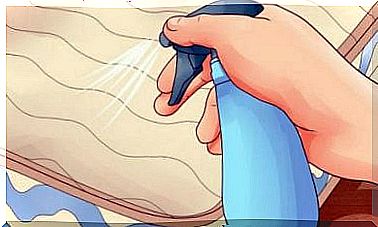Wounds Inflicted By The Family Take The Longest To Heal
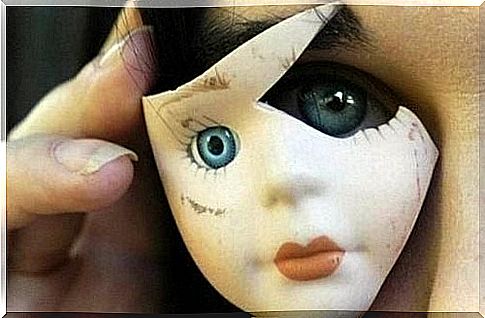
The wounds inflicted by the immediate family are usually the deepest. In addition, they heal for a very long time, sometimes even for years. Usually, it is only in adulthood that we begin to realize how our childhood and upbringing influenced our personality and relationships with the people around us.
It is from an early age that the emptiness and shortcomings we feel in the later stages of our existence come. Usually, we are not able to repair them ourselves or fill them with positive emotions.
While many people say that the still absent father, the toxic mother, the sloppy parents’ vocabulary, and the constant quarrels and screams do not make a big difference in our adult life, this is not true.
Parents often inflict very deep wounds on their children . They lower the self-esteem of a young person. And undervalued people become prone to sadness, anxiety and depression.
Today we invite you to reflect on the complexity of relationships with loved ones and its consequences in our everyday life. How to prevent difficult to heal wounds from poisoning our everyday life?
How to live in the family circle and be completely happy? Find with us the answers to these questions that haunt most of us.
Why do family wounds hurt the most?
Very often, difficulties in solving problems in intimate and private contacts with people close to us are deeply rooted in the mind wounded in childhood.
Numerous scientific studies have shown that stress experienced in the earliest years of life leads to structural changes in the brain. Especially those who are responsible for emotions and coexistence with the people around us.
Let us remember that the family is a person’s first contact with the social world. And if it does not cover a child’s basic needs, the consequences will be felt for the rest of his or her life.
Hence, the issue of learning to overcome these difficult-to-heal childhood and adolescent wounds is so important.
The family is the unconditional foundation of social life – is it true?
The culture we live in places the family in a fundamental position in the social development of every human being. Therefore, it might seem like the last place we could be hurt, betrayed or underestimated.
Well, it might seem … In fact, it is completely different. After all, it is the closest family that inflicts the most painful wounds from which we have not been able to lick ourselves over the years. Lack of love and misunderstanding with which young people meet must affect their adult life.
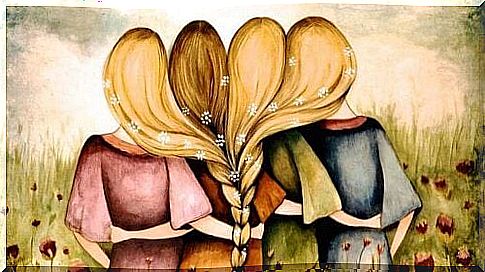
Parents – heads of the family, are obliged to provide us with everything that is best in them, surround us with love and a sense of security, encourage, build mutual trust … However, they often – consciously or unconsciously – fail.
- For every child, teenager or even adult, betrayal by loved ones or deep disappointment is a serious trauma for which they are not prepared. And even more so, he has no idea how to deal with it and how to cure it.
Family wounds are passed down from generation to generation
A real family should be much more than an ordinary family tree whose elements share the same genetic code and the same surname . Family is shared roots, shared history and emotional heritage.
Very often, however, a traumatic past is passed down from generation to generation. Although their form may vary, there are always similar feelings and resentments underneath it.
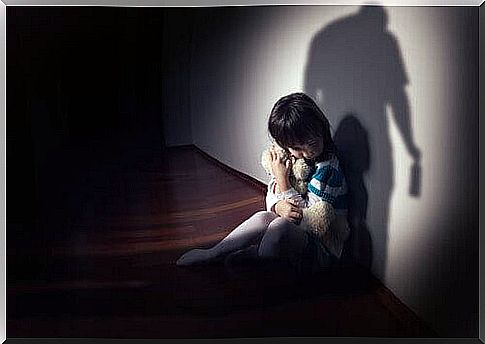
Epigenetics is the science that reminds us that everything that happens in our immediate environment has a huge impact on our genes. Hence, factors such as fear , severe stress, and unhealed resentment can spread from parents to their offspring.
This genetic inheritance is also responsible for the tendency to become depressed. It also significantly influences our behavior and reactions in difficult and unfavorable life situations.
Even though we move away from the family, the wounds of the past will make themselves felt
There comes a point in many of our lives when we tell ourselves “it’s over” and decide to cut ourselves off from those who are hurting us. We set a safe distance for us and decide to “heal” the wounds that have arisen in us over the years.
However, we should remember that the mere fact of cutting ourselves off from the family does not mean that we will heal old wounds quickly. On the contrary – very often old resentments live in us for years and in fact even a large geographic distance is not able to heal them. It is difficult to leave behind the entire history and memories of living with people who share the same blood.
Whether we like it or not, many of these traumatic factors from the past become firmly anchored in our personality and condition our relationship with the society around us over the years. We become distrustful, we make contacts with difficulty, and with distrust we enter into serious relationships with other people.
A person who has been wounded in the past needs approval. She expects other people to fill the void within her. Hence, she often feels frustrated because the new people in her life are unable to meet these basic needs.
- Psychology experts recommend that you do not seek a cure for your problems in other people, but heal old wounds yourself. The problem lies in our soul and only we ourselves can deal with it.
Poor self-esteem
Do past wounds affect our self-esteem? Yes, and to a great extent. This is perhaps the most difficult, saddest and most complicated factor in the life of a person growing up in a toxic family environment.
A person who has spent the earliest years of his life in a dysfunctional family or has been subjected to a toxic or authoritarian parenting pattern may see himself in adulthood as someone who does not deserve to be loved.

- The model of upbringing chosen by our parents shapes our roots, the core of our personality and self-esteem.
- The negative influence of these factors on the shaping of the character of a young person is very intense. Hence, there are many examples of lack of faith in our own abilities, weakened self-esteem , lack of courage to act, and even the feeling that we do not deserve a dignified and happy life.
Let us remember that the closest family can give us wings, but also, on the contrary, can also cut them off forever. As sad and devastating as it is for the human individual, reality over-confirms these facts.
As the famous saying goes, “you don’t choose a family”. However, we ourselves have an influence on what our life and relationships with our loved ones will look like. We have to plan our life path ourselves, without looking at the family. It is only up to us whether we decide to be strong, happy, free and emotionally mature.
We will only achieve this if we learn to deal with the demons of the past!



